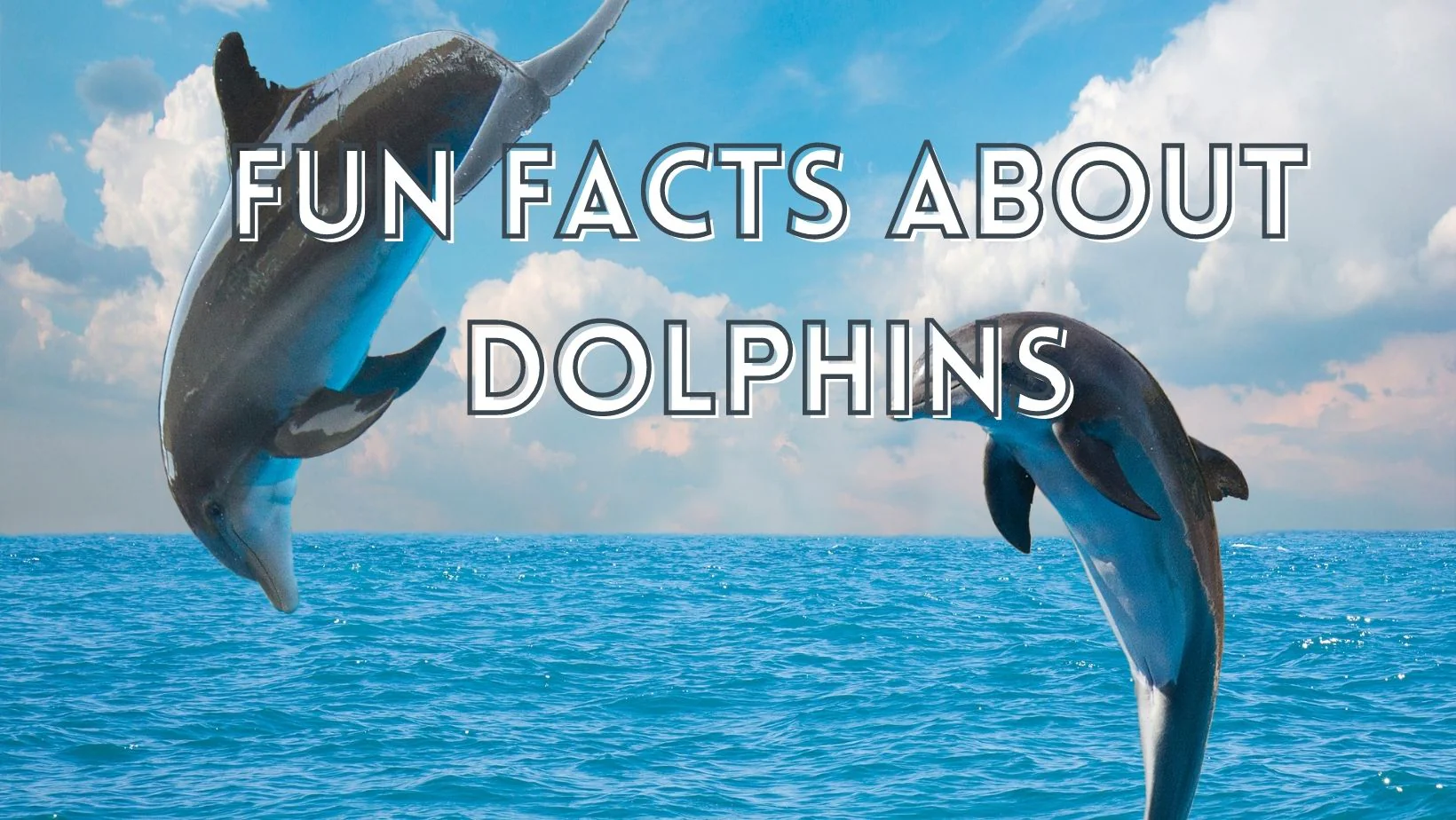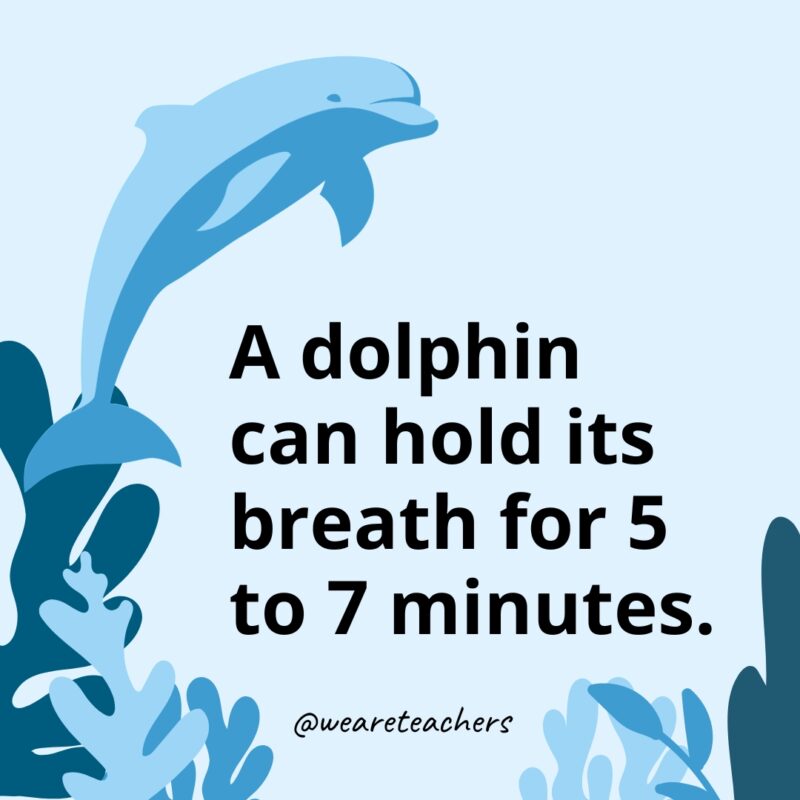Reveal Surprising Dolphin Facts That Highlight Their Playful Nature
Wiki Article
Study the Sea: Fascinating Dolphin Realities for Sea Lovers
The world of dolphins provides a remarkable junction of knowledge, social actions, and eco-friendly relevance. With roughly 37 varieties, these marine creatures display a variety of impressive qualities that not only astound sea enthusiasts yet additionally highlight their essential duty in aquatic ecosystems. From their intricate communication methods to their excellent analytic capabilities, dolphins test our understanding of pet intelligence. Nevertheless, journalism demand for conservation efforts to secure these creatures and their habitats raises crucial concerns concerning our responsibility towards the sea's inhabitants. What implications do these variables hold for our interactions with these impressive beings?Dolphin Species Variety
Diversity is a characteristic of the dolphin family members, including a wide variety of varieties that display distinctive physical attributes, actions, and environments. The household Delphinidae, commonly referred to as nautical dolphins, makes up approximately 37 varieties, each adjusted to specific environmental specific niches. The bottlenose dolphin (Tursiops truncatus) is renowned for its knowledge and adaptability, flourishing in both open and coastal ocean environments.On the other hand, the orca (Orcinus orca), typically described as the awesome whale, is the largest participant of the dolphin family members and is identified by its striking black-and-white pigmentation. Orcas show complicated social frameworks and hunting techniques, showcasing the behavioral variety within the family. Other species, such as the rewriter dolphin (Stenella longirostris), are noted for their acrobatic display screens and preference for warmer waters, highlighting the flexibility of dolphins to different marine ecosystems.
Additionally, river dolphins, consisting of the pink river dolphin (Inia geoffrensis), inhabit freshwater atmospheres, better highlighting the wide-ranging environments that dolphins inhabit. Dolphin Facts. This extraordinary diversity not just enriches marine environments but likewise stresses the relevance of conservation efforts to secure these exceptional creatures and their settings
Social Actions and Communication
The intricate social behavior and interaction techniques of dolphins are essential elements of their presence, promoting team communication and improving survival. These very intelligent marine mammals exhibit facility social structures, frequently developing coverings that can vary from a couple of individuals to over a hundred. Within these groups, dolphins involve in habits such as participating hunting, social play, and mutual defense, which cultivate strong bonds among members.Dolphins utilize an innovative variety of vocalizations, consisting of clicks, whistles, and body movement, to share details and share emotions. Their trademark whistles serve as special identifiers, similar to names, allowing people to call out to each other. This vocal interaction is complemented by non-verbal signals, such as jumping, slapping the water, and integrated swimming, which better boosts their interactions.

One-of-a-kind Feeding Routines
Unique feeding habits characterize dolphins, showcasing their adaptability and knowledge in numerous marine atmospheres. These marine mammals are known for their diverse diet regimens, which primarily contain fish, squid, and crustaceans. Their hunting techniques can vary substantially, frequently customized to the specific prey and ecological conditions.One significant approach is cooperative hunting, where dolphins operate in groups to herd schools of fish into tight developments, making it much easier for individuals to capture their meal. This social behavior not just improves their feeding efficiency however likewise strengthens social bonds within the hull. Additionally, dolphins have actually been observed utilizing a technique called "fish-whacking," where they utilize their tails to stun or disorient fish, facilitating less complicated capture.
One more remarkable feeding behavior is echolocation, which permits dolphins to find target even in murky waters. By discharging acoustic waves and translating the returning echoes, they can recognize the size, form, and location of their targets. This impressive capacity emphasizes their adaptability in different habitats, from superficial seaside areas to much deeper nautical waters. In general, the special feeding behaviors of dolphins highlight their duty as competent predators within the marine ecological community, demonstrating both intelligence and ingenuity.
Knowledge and Problem Solving
Dolphins exemplify exceptional cognitive capacities that prolong past their innovative feeding methods. Their knowledge is apparent in their problem-solving skills, social communications, and capacity for discovering. Research study has actually shown that dolphins can utilize tools, such as making use of aquatic sponges to secure their rostrums while foraging on the seafloor. This actions highlights their capacity to control their atmosphere properly and adapt approaches to enhance survival.In addition, dolphins display sophisticated interaction abilities, employing a her comment is here complicated system of clicks, whistles, and body language. Dolphin Facts. This interaction is vital for collaborating group tasks, such as searching and socializing, showing their capability to work jointly towards a typical objective. Their capacity to comprehend abstract principles, including self-recognition in mirrors, further highlights their cognitive sophistication
In regulated studies, dolphins have actually revealed an ability to fix problems and perform tasks that require both memory and essential thinking. These interactions show not just knowledge but also a determination to involve with their atmosphere in unique means. Overall, the cognitive expertise of dolphins puts them amongst the most intelligent species on the world, promoting a deeper gratitude for their role in marine environments.
Conservation and Environmental Effect
Conservation efforts targeted at you can look here securing aquatic ecosystems are essential for preserving dolphin populaces and their environments. Dolphins are very delicate to environmental adjustments, and their survival is intricately connected to the wellness of oceanic environments. Overfishing, pollution, and environment adjustment pose considerable hazards to both dolphins and their environments.Overfishing interrupts the food cycle, causing a decrease in target species important for dolphin survival. Moreover, pollutants such as plastics and chemicals accumulate in marine atmospheres, threatening dolphins with consumption and bioaccumulation. Raised water temperature levels and sea acidification, consequences of climate change, further jeopardize the fragile equilibrium of aquatic environments, impacting dolphin reproduction and migratory patterns.
Preservation initiatives, including the facility of aquatic secured areas (MPAs), play an important role in protecting these smart creatures. MPAs help mitigate human impact, permitting ecological communities to flourish and recover. Public recognition projects and neighborhood interaction are also important, fostering a society of stewardship towards aquatic life. By prioritizing preservation efforts, we can ensure that future generations enjoy the elegance and vitality of dolphins and the oceans they live in. Securing marine ecological communities is not almost saving dolphins; it has to do with protecting the intricate internet of life that sustains all of us.
Verdict
Dolphins exhibit the complexity and richness of marine life with their varied varieties, intricate social structures, and progressed cognitive abilities. As crucial elements of aquatic ecological communities, dolphins underscore the necessity of continuous conservation efforts to guard their environments.Other types, such as the spinner dolphin (Stenella longirostris), are kept in mind for their acrobatic display screens and choice for warmer waters, highlighting the flexibility of dolphins to numerous marine environments.
Generally, the special feeding behaviors of dolphins highlight directory their duty as skilled predators within the aquatic ecological community, showing both knowledge and ingenuity.
On the whole, the cognitive expertise of dolphins puts them among the most intelligent species on the planet, cultivating a much deeper recognition for their role in marine ecosystems.

Report this wiki page